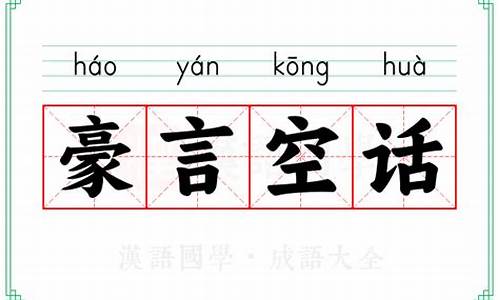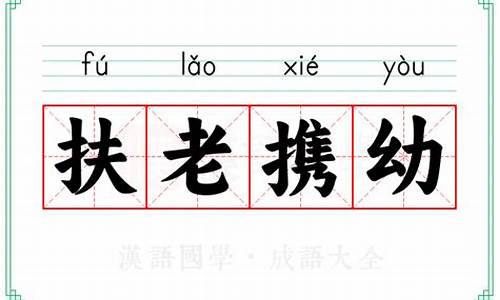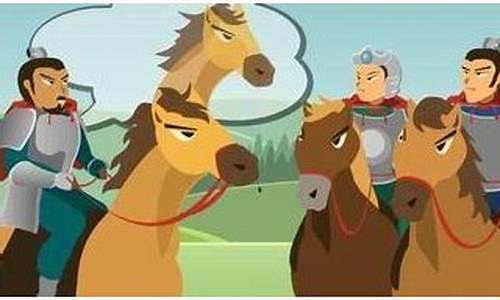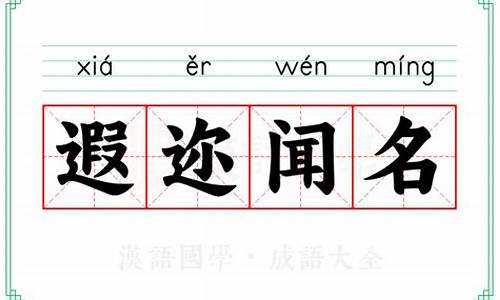顺理成章的意思和用法-顺理成章的意思和用法和造句
1.与完型填空过招——把握过渡性词语
2.come,comes怎么用啊
3.迎刃而解近义词?
4.顺理成章的英文怎么说
与完型填空过招——把握过渡性词语
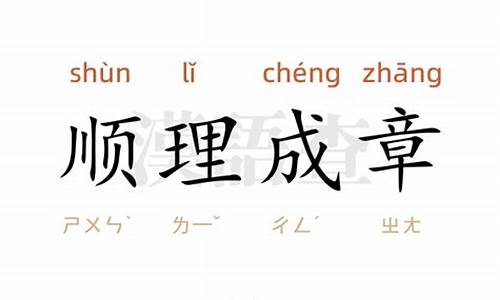
过渡性词语在一篇文章中的作用举足轻重,一篇文章中句与句、段落与段落之间各种关系的体现都离不开过渡性词语,而作者贯通思想脉络,使段落思想表达清晰、流畅的“万金油”也是非过渡性词语莫属了!
it is not the fine coat that makes the gentleman.
使人成为君子的并不是讲究的衣着。
[活动教室]
passage 1.
physical punishment
physical punishment has been a problem in hitting their children so they can have discipline or not hitting them because it is not right,1)can parents do and what can they not do?should the parents hit them to learn discipline,2)they not hit them and figure out another way to make them learn what discipline is?
3)many parents do not know or are confused in showing their children how to gain discipline,they do not know whether to hit them or not to hit them. many people think that by hitting their children that they are showing them violence 4)other people say that if you do the children would understand that they did something wrong and would not repeat it and gain discipline. what can parents do?
first of all,parents feel that the children are theirs,and they can spank them when they misbehave. there are many factors that lead to physical punishment:parents were too young and not ready for children,parents are going through a divorce and need to take out their anger on something or someone,5)parents do not know another way to punish their children. these children grow up to be aggressive and often abusive towards others. 6)parents think this is the only way of educating their children,there are many other alternatives.
there are other alternatives to punishing the children for their bad behavior. there are less severe punishments besides spanking. 7),they can take away their television privileges,computer use,and playing outside with their friends. next,they could ground them for the weekend and cancel plans. 8)parents could take the time to sit and talk to their children about their bad behavior.
physical punishment may cause a child psychological problems. first,if the physical punishment starts at an early age,the child will be used to being physically punished,9),his or her self?esteem may severely negative as he or she grows up. second,it is a life?affecting act to physically punish a child because they will be traumatized. 10)parents should think twice before they can physically punish their children. what they should think of is what problems they are causing the child in its life.
in conclusion,every parent must take consideration that the negative affects that spanking may cause a child.
pride hurts,modesty benefits.
满招损,谦受益。答案与解析:
1.答案〖so what〗解析:由该句结尾处的问号及and后的what可推断空格内应为疑问词what,且为使上下文连贯顺畅,填入so what最恰当。
2.答案〖or should〗解析:此处是和上半句形成并列关系的句式,因此应重复should并加上表示选择疑问的or.
3.答案〖because〗解析:此处需要一个表原因并能够引领下文的单词,我们选用because.在这种情况下我们常会想到两个词,because 和for,通常情况下两个表“原因”的连词是可以互相代用的。because多用于表示直接原因,for可以表示原因又可以用于提出说明,语气比前者轻得多。because引导的从句一般放在主句后,有时也可放在主句前,而for引导的句子只能放在后面。另外在回答why的问句时,只能用because而不能用for.再者,for不能跟not……but句式连用,如:(1)i did it not because i liked it but because i had to do it.(正确)(2)i did it not for i liked it but for i had to do it.(错误)
4.答案〖but〗解析:该空格前后为两种截然不同的观点,故此处用表转折的but顺理成章。转折、承接性的连接词的学习和运用看似简单,实际上彼此很容易混淆,如果这部分知识掌握不扎实,就很难达到练就地道英语的目的。现在我们来比较一下相关的词语: but,however,still,nevertheless,yet这些词的词义接近,都表示转折和让步。
(1)but用来引出微弱的相反的意见,是口语常用语,如:sally was amused,but i was very embarrassed.萨莉很开心,但我却很尴尬。
(2)however比but的词义还要弱些,并不直接引出相反的意见,因此常用作插入语,如:the most surprising thing about it,however,is that it can land anywhere.不过,答案〖but〗解析:关于这架飞机最使人吃惊的事情是,它可以在任何地方着陆。
(3)still还,还是,如:it is true that winter is over;still,it is almost as cold.冬天已经过去了,这是事实,但天气还是那么冷。
(4)nevertheless的含义为即使做出完全的让步,也没有任何影响,或者说也不是决定因素,如:there was no news;nevertheless,she went on hoping.一点消息也没有,但她仍抱着希望。
(5)yet的含义为即使做出极端的让步,也不会发生期待的结果,如:he worked hard,yet,he failed.他干得很卖力,然而却失败了。
a man who fears suffering is already suffering from what he fears.
害怕痛苦的人其实已经在承受他所害怕的痛苦了。
5.答案〖or〗解析:在进行事物等的罗列时,我们常会用到的有and(表纯粹的并列),or(不然,否则。意思比较丰富),还有就是单纯用逗号连接。现在我们来具体体会一下单词or.
(1)表选择,当主句的人称与数不一致时,动词随最近的主语而变化,可解释为“或,或者;还是”,如:john or you are in class two.约翰或你在二班。
(2)表示不明确,在翻译时不直接译出,“大约,或者”,如:two or three miles两三里(距离)
(3)引导同义词或说明语,“或者说,即”,如:late last night or rather early this morning昨晚深夜,或更确切地说今天一大早。
(4)常和else连用,“否则,要不然”,如:make haste,or(else)you?ll be late.快点,要不然就晚了。
(5)在否定结构中否定前后二者,“不……也不”如:he cannot read or write.他既不会读也不会写。
(6)表让步,“不管……还是”,如:rain or shine,i?ll go.不管下不下雨,我都去。
6.答案〖although〗解析:根据句意填入表“虽然……但是”的承接词最恰当。在使用although时,请大家特别注意,主句中不能再用 but,但可用副词nevertheless,yet等,在多数情况下,可与though通用,也可简写成altho,但在正式文章中不宜简写。
7.答案〖first〗解析:本段的主要内容是告诉父母们如何使用更加温和的方法来教育孩子。这段条理很清楚,主要是一些教育方法的列举,因此这个空格在稍后的next一词的提示下我们可得出答案是first.
8.答案〖last of all〗解析:该段的最后一条内容,也可用finally或the third.这是一段饱含劝解的文字,相比之下如果我们使用finally或the third就显得有些生硬,不够生动。所以last of all是我们的首选。
9.答案〖therefore〗解析:此处需要一个承上启下的词,用“因此”最恰当。therefore多用于推理,“因此,因而”,如:he was the only candidate;therefore,he was elected.他是惟一的候选人,因此他当选了。
10.答案〖eventually〗解析:修饰整句的副词,表“最后”,如:he worked so hard that eventually he made himself ill.他工作太卖力,最后自己病倒了。
adversity is a good disciple.
逆境是锻炼人的场所。
passage 2.
pros and cons of having hands in the pockets
there are far more pros for students having their hands in their pockets.
1)let?s look at the comparisons and weigh up the results of the two anyway.
let?s look at the cons to start with. the main con is that mr. pinto is against students having hands in their pockets.
2)why is mr. pinto against hands in pockets?as he has explained,he feels that it is disrespectful,for he believes that when your hands are in your pockets,you are not listening properly.
3)there is the belief of the nineteen sixties and seventies that when young men or women have their hands in their pockets,it will lead to them masturbating. this was frowned upon at the time
4)now it is more acceptable. this may also be a contributing factor to why mr. pinto has made a stand against hands in the pockets. for he is old enough to have lived through and taken in these rudimentary views(no disrespect intended)。
5)the pros can easily rebut the allegation of the cons. young men as energetic as they will be are constantly requiring to do something. think of the pockets as a restraining device to prevent fidgeting and fooling around with other students.
in this way,the pockets prevent students from being distracted from the speaker
6)the subject they should be observant of. this prevents the students from having a disrespectful response.
7)comes the comfort factor. students claim that it is more comfortable to have their hands in their pockets when they are standing up. heed that it is proven that people have longer attention spans,listen more attentively,and remain calmer and more relaxed when more comfortable. this leads to a greater increase in the productivity of the students?actions or listening skills.
8)it has been proven students having their hands in their pockets will make them better and more attentive listeners and prevent them from getting up to mischief. is it better the students have their hands in their own pockets than be fooling around in someone else?
答案与解析:
1.答案〖nevertheless〗解析:本词意思是:(尽管如此)还是,仍然。作者在文章的一开头就提出了一个观点,即对于学生双手插兜的现象,赞成的态度多一些。该词起到引领全文的作用,即便我们有这样的认识,还是应该看一下具体的讨论和比较。nevertheless有即便做出让步,影响仍很小的含义。
2.答案〖still〗解析:该词在此是一个连词,表示“但是,仍然”,如:he is dull;still he tries hard.虽然笨,可是他很刻苦。该词在句中起强调的作用。
art is long,life is short.
人生有涯艺无涯。
3.答案〖〗also解析〖〗为承接上一段的内容,继续列举人们对于学生将手插兜的不赞成观点,这里用表示“也,还是”的词来连接上下文。当提到“也,还是”含义的词时,我们不禁会想到很多常用的同义词,除also之外还有too,likewise,besides,moreover, furthermore等,现在我们来回顾这些词的用法:所有这些副词都是介绍附加内容之用的。相比之下,also在语气上比too正式一些,试比较: he is gentle,but he is also capable of fierce intellectual combat. 他很温和,但他也能够进行激烈的斗智。if you buy a car,you?ll need a parking place,too.如果你买辆车,你还需要一个停车场。再看likewise,它比also更加正式,并可能暗示各成分之间的平等和相似,如:you forgot to mention that her parents were likewise going to attend the ceremony.你忘了提到她父母也可能去参加仪式。besides经常引出一个加强前面内容的成分,如:i don?t feel like cooking;besides,there?s no food in the house.我不想做饭,而且家里已经没有可吃的东西了。moreover强调要出现事物的重要性,如the cellar was dark and forbidding;moreover,i knew a family of mice had nested there.这个地窖阴森可怕,而且我知道那有一窝老鼠。furthermore同moreover类似,常强调要出现事物的重要性,如:i don?t want you to go,furthermore,i forbid it.我不想让你去,而且我也禁止你去。
4.答案〖whereas〗解析:本词意思是:然而,反之,鉴于。和十九世纪六十年代相比,现在的观点有所变化,故用连词“然而,反之”连接两个时期的看法。
5.答案〖however〗解析:说过了人们对于双手插兜的反面看法后,至此该引入对这一问题的正面看法了,因此用however“不管用何种方法”引导。该段主要在说明正面作用多于负面作用。
6.答案〖or〗解析:在这段中提到了和反面观点不同的看法,即青年学生双手插兜可以集中他们对关注的人或事的注意力,从而提升他们对关注对象的尊敬感。空格前后为并列关系的人和事,我们知道通常人只能在同一时间与人或物打交道,何况这里还有一种强调专一的意思存在,因此我们使用or“或者”,而不用 and“和”之类的词语。
a crooked stick will have a crooked shadow.
身不正,影必斜。
7.答案〖then〗解析:本词意思是:然后,之后,后来,如:i cooked the meat and then i washed the pot.我烧好肉,然后刷了锅。then表承接,跟随刚才提到的关于学生双手插兜的现象的正面分析之后出现了一系列更能佐证正面效果的结论。
8.答案〖as〗解析:本词意思是:(表原因)由于,既然。文章的结尾段对全篇进行总结归纳,主要内容为:既然学生双手插兜能够收敛他们的注意力,使他们不再淘气,那么将手放入口袋不是比吊儿郎当更好吗。这里的一个词组fool around常用于口语中,意为“吊儿郎当”。
[友情提示]
记住常用的过渡性词语,多多益善。因为这对于你的文章至少会有三大好处:一、通顺连贯;二、句式多变,三、凑点字数。
you can?t eat your cake and have it also.
世事两难全。
come,comes怎么用啊
comes是come的第三人称单数形式。在一般现在时中,如果主语时第三人称单数,后面的谓语动词就要变为单三式。
come的英式读法是[k?m];美式读法是[k?m]。只作动词意思是来;来到;来取、来拿;成为;达到;接近;摆出 ... 的样子;处于(某个位置)。
v. (动词)用法:
1)come的基本意思是“朝某中心点接近、到达某地点或达到某种状态”。
2)come可以表示“来临,降临”,常用以指时间或事件按规律或自然法则等“顺理成章”地到来,也可指和他人在一起来参加某活动。
3)“come+静态动词的不定式”构成复合谓语,可表示一种情况变化的过程,如由“不知”到“知之”,由“不清楚”到“清楚”,由“不理解”到“理解”,即给静态动词一个起点,而使其具有动态意义,且具有“终于”的意味。
4)现在分词与come连用,可表示伴随动作〔状态〕,指某人或某事物按某种方式行进或某人在行进中做某事,也可表示目的。
5)come在祈使句中一般不接动词不定式表示目的,而多用“come?and to/ - v ”结构,在美式英语中,尤其是口语中and常可省略。
6)come可以用作系动词,接形容词作表语,意思是“变得,成为”,常常指好的事情。
7)come除在成语或谚语中外一般不用于被动结构,但其过去分词可和be连用构成系表结构。
8)come的进行时可表示按计划或安排即将发生的动作,这时一般有表示将来的时态或特定的上下文。若表示过去将来的情况须用was/were coming,但come通常不用be going to结构。
9)come是非延续性动词,不与表示一段时间的状语连用。
扩展资料:
单词解析:
1、变形:
过去式:?came?
过去分词:?come?
现在分词:?coming?
2、相关例句:
1、They come here every month.(第一人称)
他们每个月都来这。
2、He comes here every month.(第三人称)
他每个月都来这。
3、 It looks as if a sandstorm is?coming?up.
沙尘暴似乎就要来了。
4、The other day I came across a friend in the street.?
日前我在街上遇见了一位朋友。
参考资料:
百度百科-come
迎刃而解近义词?
迎刃而解的同义词
迎刃而解词义:原意是说,劈竹子时,头上几节一破开,下面的顺着刀口自己就裂开了。比喻处理事情、解决问题很顺利。
近义词:
迎刃冰解——比喻处理事情、解决问题很顺利。同“迎刃而解”。
迎刃而理——比喻处理事情、解决问题很顺利。同“迎刃而解”。
迎刃立解——比喻处理事情、解决问题很顺利。同“迎刃而解”。
迎刃以解——比喻处理事情、解决问题很顺利。同“迎刃而解”。
批郤导窾——比喻善于从关键处入手,顺利解决问题。
批隙导窾——比喻善于从关键处入手,顺利解决问题。
批砉导窾——犹言批郄导窾。比喻善于从关键处入手,顺利解决问题。
迎刃而解近义词
水到渠成,瓜熟蒂落,顺理成章
迎刃而解_百度汉语
[拼音] [yíng rèn ér jiě]
[释义] 原意是说,劈竹子时,头上几节一破开,下面的顺着刀口自己就裂开了。比喻处理事情、解决问题很顺利。
[出处] 《晋书·杜预传》:“今兵威已振;譬如破竹;数节之后;皆迎刃而解;无复着手处也。”
迎刃而解近义词.
迎刃而解近义词有以下三个成语:
1、瓜熟蒂落
拼音:guā shú dì luò
释义:蒂:花或瓜果跟枝茎相连的部分。瓜熟了,瓜蒂自然脱落。指时机一旦成熟,事情自然成功。
出处:宋·张君房《云笈七签》卷五十六:“体地法天,负阴抱阳,喻瓜熟蒂落,啐啄同时。”
例句:况吉人天相,自然~,何须过虑。 清·禇人获《隋唐演义》第十一回
2、水到渠成
拼音:shuǐ dào qú chéng
释义:渠:水道。水流到的地方自然形成一条水道。比喻条件成熟,事情自然会成功。
出处:宋·苏轼《答秦太虚书》:“至时别作经画,水到渠成,不须预虑。”
例句:须要自然而然,~,非由车戽,最忌无因而至,突如其来。 清·李渔《闲情偶寄·大收煞》
3、顺理成章
拼音:shùn lǐ chéng zhāng
释义:顺:依顺;理:条理;章:章法。指写文章或做事情顺着条理就能做好。也比喻某种情况自然产生某种结果。
出处:《朱子全书》:“文者,顺理而成章之谓。”
例句:事情这样做~,既解决了问题,又受到群众的拥护。
迎刃而解的近义词
迎刃冰解 [yíng rèn bīng jiě]
生词本
基本释义
比喻处理事情、解决问题很顺利。同“迎刃而解”。
近反义词
近义词
迎刃而解
成语接龙
解疑释惑 惑世诬民 民穷财尽 尽情尽理 理之当然 然荻读书书缺有间 间不容息 息息相通 通共有无 无迹可寻 寻觅活活龙鲜健 健步如飞 飞砂转石 石沉大海 海沸波翻 翻空出奇奇装异服 服牛乘马 马角乌白 白玉微瑕 瑕不掩瑜 瑜百瑕一
迎刃而解的"解"什么意思
迎刃而解的意思为把竹子劈开口,下面的一段竹子就迎著刀刃裂开了。比喻主要问题解决了,其它的问题就很容易解决。或比喻处理事情、解决问题很顺利。
那么解的意思就是裂开的意思
迎刃而解的近义词是什么无可奈何的反义词是什么
迎刃而解近义词:水到渠成,瓜熟蒂落,顺理成章
无可奈何的反义词游刃有余、运筹帷幄、胸有成竹
迎刃而解和茅塞顿开是不是近义词
你好,很高兴为您解答\(^o^)/~祝你学业有成
这两个词不是近义词
迎刃而解
拼音:
yíng rèn ér jiě
简拼:
yrej
同义词:
易如反掌迎刃冰解
反义词:
百思不解
用法:
偏正式;作谓语、定语、宾语;含褒义
歇后语:
刀劈茅竹
出处:
《晋书·杜预传》:“今兵威已振,譬如破竹,数节之后,皆迎刃而解。”
解释:
原意是说,劈竹子时,头上几节一破开,下面的顺着刀口自己就裂开了。比喻处理事情、解决问题很顺利。
例子:
只要这位教士到场,任你事情如何棘手,亦无不~的。(清·李宝嘉《官场现形记》第五十四回)
茅塞顿开
拼音:
máo sè dùn kāi
简拼:
msdk
同义词:
恍然大悟
反义词:
冥顽不灵
用法:
主谓式;作谓语、定语、状语;含褒义
出处:
先秦·孟轲《孟子·尽心下》:“山径之蹊间,介然用之而成路;为闲不用,则茅塞之矣。今茅塞子之心矣!”
解释:
茅塞:喻人思路闭塞或不懂事;顿:立刻。原来心里好象有茅草堵塞著,现在忽然被打开了。形容思想忽然开窍,立刻明白了某个道理。
迎刃而解的刃是什么意思
就是指刀刃,原意是说,劈竹子时,头上几节一破开,下面的顺着刀口自己就裂开了。比喻处理事情、解决问题很顺利。
顺理成章的英文怎么说
顺理成章的英文:follow a logical train of thought.
重点词汇:thought
一、读音:英?[θ?t]? ? ?美?[θ?t]? ?
二、意思是:n. 思想;想法;意向;思念;观念;打算;关心;顾虑
三、词汇用法:
1、thought是与动词think的过去式或过去分词同形的名词,基本意思是“思索、思考”,也可指“思维能力”或“思考的过程”,还可指“(某一时期、阶级、国家等的)思想、思潮”。
2、thought可统指“思想”,表示“一个思想”时,用a thought,但表示多个时,用thoughts。
四、例句:这显然是顺理成章的。
This?is?undoubtedly?logical.?
扩展资料
词汇辨析:
thought, concept, conception
这组词都可表示“想法,概念”。其区别是:
idea是日常用语,使用范围广,指一种“想法”,也可用于学术方面,指“观念”“概念”。conception所指的“概念”“观念”“想法”是哲学用语,指理性的认识与概括的结果。concept指从同类事物中归纳出来的“基本概念”,也指一般人们对某一事物所持有的“观念”。
词汇搭配:
abandon the thoughts of?抛弃…的想法;bare one's thoughts?暴露意图
collect one's thoughts?集中思想;distract sb's thought?使某人分心
声明:本站所有文章资源内容,如无特殊说明或标注,均为采集网络资源。如若本站内容侵犯了原著者的合法权益,可联系本站删除。

